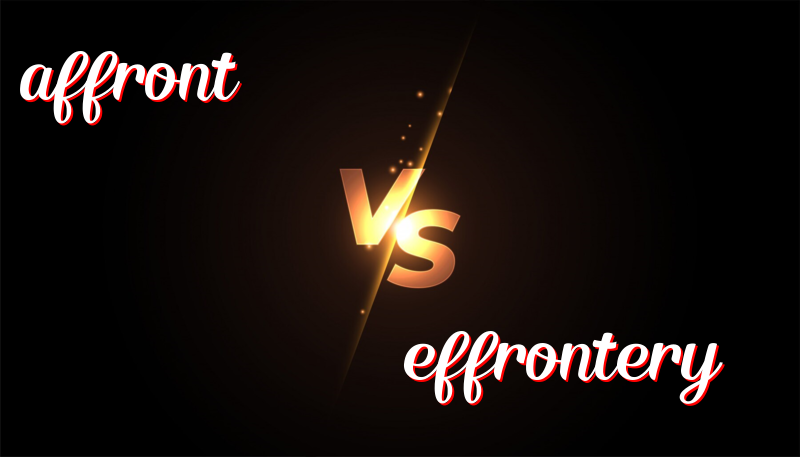英語單詞affront 與 effrontery的區別
October 16, 2024
詞語研究:Affront 和 Effrontery 的差異
在英語中,”affront” 和 “effrontery” 是兩個經常被混淆的詞語。這兩者都涉及到不敬或冒犯,但其用法和語境卻有所不同。以下將詳細說明這兩個詞的歷史、如何使用它們,以及記住差異的小技巧。
詞語歷史
Affront
“Affront” 來自中世紀法語的 “afronter”,意指「面對」或「公然冒犯」。最初,這個詞更多用於形容當面侮辱或挑釁的行為。
Effrontery
“Effrontery” 亦源自法語,歷史可追溯到拉丁語 “effrons”,意為「沒有羞愧的臉」。這個詞主要用來形容厚顏無恥的行為,特別是那種不顧社會規範的厚臉皮行為。
如何使用這兩個詞
Affront 的用法
“Affront” 作為動詞時,意思是「當面侮辱或冒犯」。作為名詞時,它指的是「公開的侮辱或冒犯」。以下是五個例句:
- The speaker took the question as an affront to his honor.
演講者將這個問題視為對他榮譽的冒犯。 - Her rude comments were an affront to everyone’s dignity.
她的粗魯評論是對每個人尊嚴的冒犯。 - He did not intend to affront his friend during the debate.
他並不打算在辯論中冒犯他的朋友。 - Being ignored by the host was seen as a direct affront.
被主人忽視被看作是直接的侮辱。 - The affront was so grave that it led to a public apology.
這次冒犯如此嚴重,以致於導致了公開道歉。
Effrontery 的用法
“Effrontery” 是一個名詞,指的是極度厚顏無恥的行為。以下是五個例句:
- His effrontery in asking for a raise after a month was shocking.
他在工作一個月後就要求加薪,這樣的厚顏無恥令人震驚。 - She had the effrontery to interrupt the speaker multiple times.
她竟然厚顏無恥地多次打斷演講者。 - The effrontery of the young man’s behavior was appalling to all.
這年輕人的行為無恥驚人。 - Audacious and full of effrontery, he took credit for the team’s work.
大膽且厚顏無恥地,他將團隊的成果歸功於自己。 - He displayed effrontery by making demands he had no right to make.
他無權提出要求,但仍厚著臉皮提出。
記住差異的小技巧
要記住這兩個詞的不同用途,可以記住 “affront” 中的 “front”,指的是「正面」或「當面」,通常涉及當面冒犯。與此相對,”effrontery” 可與「無恥」聯想,強調無視社會禮節的厚顏無恥。
總結
“Affront” 通常指的是公開的侮辱或冒犯,可以是動詞或名詞;而 “effrontery” 則特指不當的無恥行為,是名詞。理解使用這兩個詞語的語境和含義,有助於準確地傳達特定的意思。

Leave a Reply
You must be logged in to post a comment.